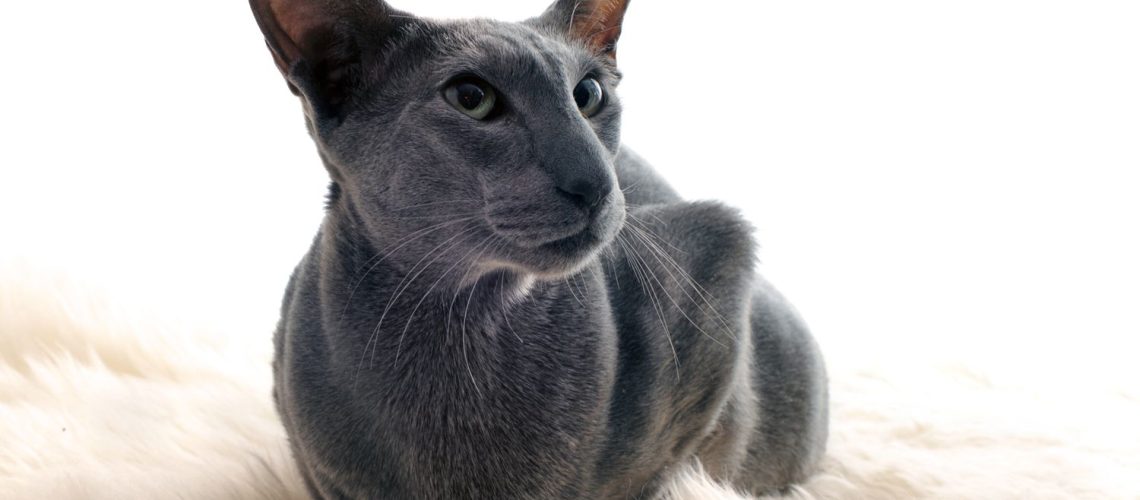Are you a cat lover searching for the perfect feline companion to share your life with? Look no further! In this article, we will explore the fascinating world of cat breeds known for their exceptionally long lives.
Key Takeaways:
- Some cat breeds are known for their long lifespans, which can be a desirable trait for potential pet owners.
- A cat's breed can play a role in determining its lifespan, with certain breeds being more prone to living longer lives.
- Long-lived cat breeds often have fewer health issues and genetic predispositions to certain diseases compared to other breeds.
- Proper care and nutrition are essential for maximizing the lifespan of any cat, regardless of its breed.
- While genetics can influence a cat's lifespan, individual lifestyle factors such as exercise, mental stimulation, and regular veterinary check-ups also play significant roles in promoting longevity.
Forever Friends: The Cats Known for Their Long Lives
The Fascinating World of Cat Lifespans
Did you know that cats can live for a very long time? Some cat breeds are known for their exceptional longevity, living well into their late teens or even early twenties. These cats, often referred to as "forever friends," bring joy and companionship to their owners for many years. But what makes these cats live longer than others? Is it genetics, diet, or something else entirely? Let's explore the world of cat lifespans and discover the secrets behind the long lives of forever friends.
Understanding the Factors Behind Cat Lifespan Differences
Cat lifespans can vary significantly depending on various factors. Genetics play a crucial role in determining how long a cat will live. Some breeds are simply predisposed to longer lifespans due to their genetic makeup. Additionally, lifestyle factors such as diet, exercise, and overall health care can also impact a cat's lifespan. Cats that receive proper nutrition, regular veterinary check-ups, and plenty of mental and physical stimulation tend to live longer than those who don't.
Meet the Long-Lived Cat Breeds: Which Ones Live the Longest?
The Age-Defying Maine Coon
One of the longest-lived cat breeds is the majestic Maine Coon. Known for their large size and friendly nature, these gentle giants often live well into their late teens or early twenties. With proper care and a healthy lifestyle, Maine Coons can be your forever friend for many years.
The Timeless Siamese
The Siamese breed is another long-lived feline companion. These elegant cats have been known to reach ages of 15 to 20 years. Their striking blue eyes and affectionate personalities make them a popular choice among cat lovers looking for a lifelong companion.
The Secrets to a Forever Friend's Longevity
A Balanced Diet for a Long Life
One of the key secrets to a forever friend's long life is a balanced diet. Providing your cat with high-quality, nutritionally complete cat food can help support their overall health and longevity. Consult with your veterinarian to determine the best diet for your feline friend based on their specific needs and age.
Regular Veterinary Check-ups
Regular veterinary check-ups are essential for ensuring your forever friend stays healthy and lives a long life. During these visits, your veterinarian can detect any potential health issues early on and provide appropriate treatment or preventive care. Vaccinations, dental care, and parasite control are also important aspects of maintaining your cat's well-being.
Caring for Forever Friends: Tips to Help Them Live Longer
Provide Mental and Physical Stimulation
Keeping your forever friend mentally and physically stimulated is vital for their overall well-being and longevity. Engage in interactive play sessions with toys, provide scratching posts, and create an enriching environment that encourages exploration. Puzzle toys or treat-dispensing toys can also keep their minds sharp and active.
Create a Safe Indoor Environment
To ensure your forever friend stays safe from outdoor hazards such as traffic accidents or exposure to diseases, it's best to keep them indoors. Create an indoor environment that offers plenty of vertical spaces for climbing, hiding spots for relaxation, and windows for bird-watching entertainment.
A Forever Friend: Your Perfect Companion for Years to Come
Having a forever friend by your side can bring immense joy and companionship for many years. Whether you choose a Maine Coon, Siamese, or another long-lived breed, the bond you form with your feline companion will be cherished for a lifetime. Remember to provide them with love, care, and the tools they need to live a long and healthy life.
The Challenges of Aging: Health Issues Faced by Forever Friends
As cats age, they may face certain health issues that can affect their quality of life. Common problems in older cats include arthritis, dental disease, kidney disease, and obesity. Regular veterinary check-ups become even more crucial during their senior years to monitor and manage these conditions effectively. With proper care and attention, however, many of these health issues can be prevented or managed to ensure your forever friend enjoys their golden years comfortably.
The Challenges of Aging: Health Issues Faced by Forever Friends
1. Physical Health Challenges
As we age, our bodies go through various changes that can affect our physical health. One common challenge is a decrease in strength and flexibility, making it harder to perform everyday tasks like bending down or carrying heavy objects. Additionally, older adults may experience joint pain and stiffness, which can limit their mobility. Chronic conditions such as arthritis, osteoporosis, and heart disease also become more prevalent with age. These physical health challenges can impact an individual's independence and quality of life.
Common Physical Health Challenges:
- Decreased strength and flexibility
- Joint pain and stiffness
- Arthritis
- Osteoporosis
- Heart disease
2. Mental Health Challenges
Aging not only affects our physical health but also our mental well-being. Many older adults face challenges related to their mental health, such as memory loss and cognitive decline. Conditions like Alzheimer's disease and dementia become more common as we age, impacting an individual's ability to remember things or think clearly. Depression and anxiety are also prevalent among older adults due to factors like loneliness, loss of loved ones, or changes in social roles.
Common Mental Health Challenges:
- Memory loss
- Cognitive decline
- Alzheimer's disease
- Dementia
- Depression
- Anxiety
3. Social Challenges
Aging often brings about changes in social dynamics that can pose challenges for older adults. As friends and family members may pass away or move away, feelings of loneliness and isolation can arise. Older adults may find it harder to participate in social activities or maintain relationships due to physical limitations or transportation difficulties. Retirement can also lead to a loss of identity for some individuals who were previously defined by their careers. These social challenges can impact an individual's mental and emotional well-being.
Common Social Challenges:
- Loneliness and isolation
- Difficulty participating in social activities
- Maintaining relationships
- Loss of identity after retirement
By addressing these physical, mental, and social challenges faced by older adults, we can better understand the unique needs of this population and work towards creating a supportive and inclusive society for our forever friends.
In conclusion, certain cat breeds are known for their long lives, such as the Siamese and Russian Blue. These cats make great companions that can bring joy and happiness for many years to come.
What breed of cat lives the longest?
The Burmese breed holds the record for the oldest living cat, with one cat reaching the age of 35. However, it is important to note that most Burmese cats do not live that long. On average, Burmese cats have a lifespan of 18 to 25 years, which is significantly longer than the average lifespan of most cats.
Can a cat live 30 years?
Most pet cats have an average lifespan of about 13 to 14 years, but with proper care, they can often live to 15 or older. Some cats even reach 18, 20, or even more remarkably, 25 or 30 years of age.
What Colour of cat lives the longest?
The Russian Blue cat is known for its tendency to rest in sunny spots and observe its surroundings from high places. This breed is susceptible to bladder stones and eye issues, but typically lives for an average of 15 to 20 years.
Can cats live for 40 years?
On average, indoor cats have a lifespan of 12 to 18 years, although some may live into their early 20s. The record for the oldest cat, Creme Puff, reached an incredible age of 38 years. Outdoor cats, however, tend to have shorter lives due to the increased risk of accidents such as being hit by a car or attacked by dogs.
What is the healthiest and longest living cat breed?
Some of the cat breeds known for their long lifespans include the Balinese, Siamese, Russian Blue, American Shorthair, and Burmese. Additionally, there have been many mixed-breed cats that have lived to be quite old. While the average lifespan for a cat is typically 12-14 years, it is not uncommon for cats of any breed to live into their twenties.
What breed of cat has separation anxiety?
Some breeds of cats, like Siamese and Burmese, are more likely to experience separation anxiety compared to breeds like Maine coons, which have stronger temperaments. The development of separation anxiety in cats is often influenced by environmental factors, such as negative bonding experiences during their early years.

















